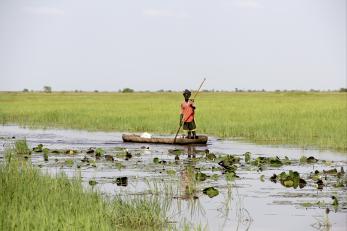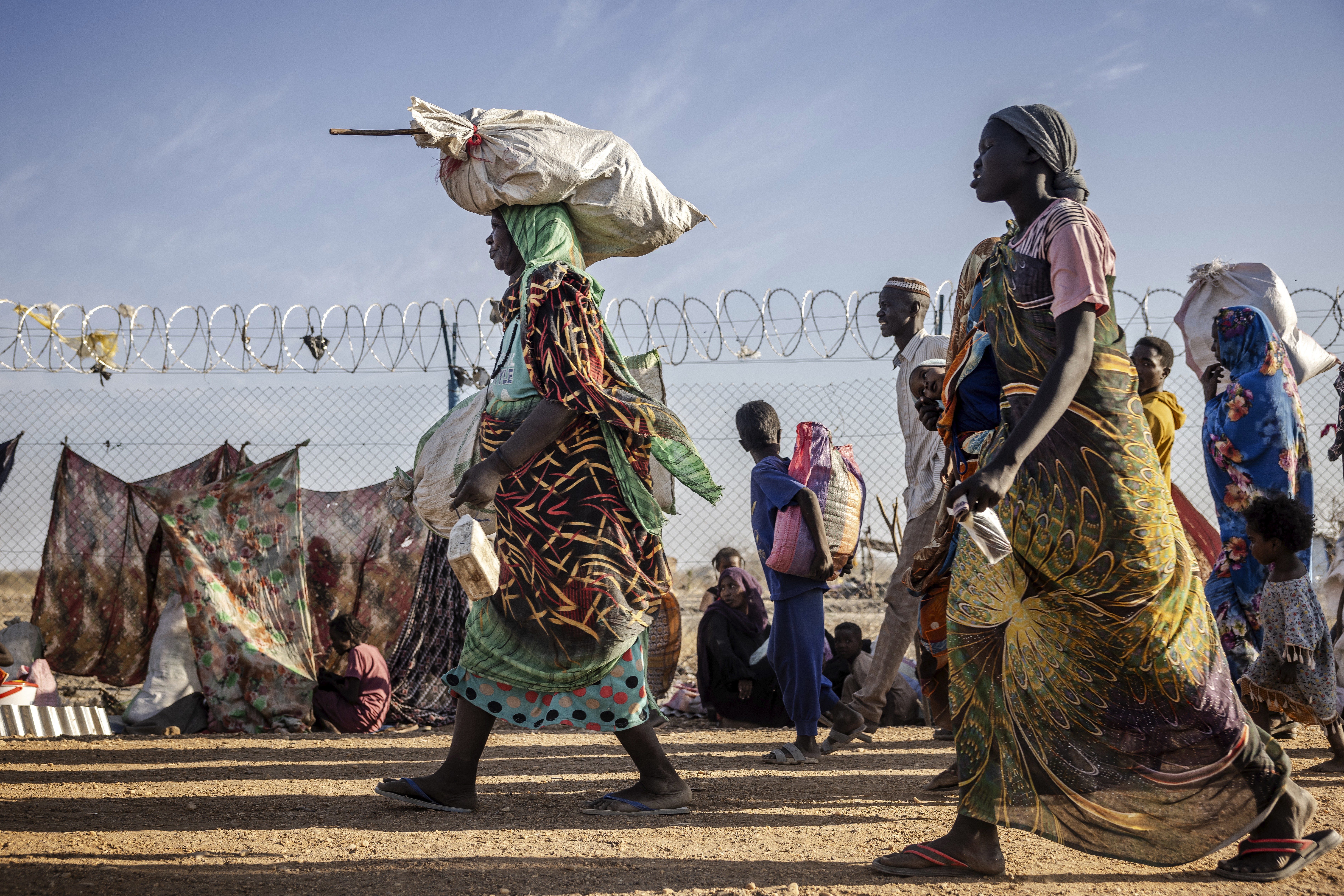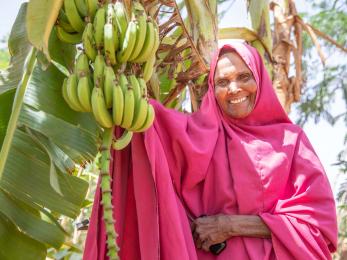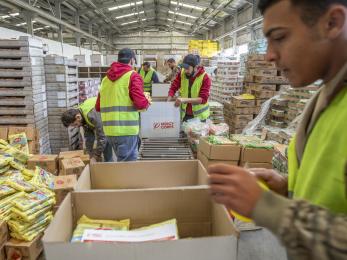The story of Ganyiel: A safe hiding place

Nearly a year of conflict in South Sudan has left millions displaced and hungry, and in Unity, one of the most violent states, there are few safe places to hide. The small and isolated village of Ganyiel is one of them, and people arrive in waves to escape when fighting erupts in other cities and towns.
But Ganyiel is no paradise. It’s considered safe, but food shortages, flooding and empty markets make survival difficult, even without a constant threat of violence.
Mercy Corps started working in the village this year, providing seeds and tools for people to plant small gardens and helping rehabilitate living spaces. When I visited Ganyiel recently, the town’s residents were clearly in need of help.
It’s estimated that nearly 45,000 are seeking refuge in the county around Ganyiel. Their stories of fleeing the violence of war are nothing short of terrifying.
Many are women who fled nearby Chuk while their husbands and sons fought against the attack on their village. Nyafala made it to Ganyiel, but her sister was killed in the violence.
Now she struggles to provide for her own children and her sister’s. “Some of us lost husbands. Some of us lost children. They lit all of our belongings on fire. They piled everything up and burned it all together.”
Countless families have been split up during the conflict, and many people in Ganyiel are separated from their loved ones. One woman fled fighting in Bentiu with only her four youngest children — she doesn’t know where the four eldest ended up or if they are alive. Elizabeth's story ▸
Puok is an elder in Ganyiel and has welcomed those seeking safety into the village, but he worries about everyone in the community getting what they need. “If the war continues, there will be starvation. The war has taken our sons; starvation will take the rest."
Hunger is a daily reality for everyone, and many families are skipping meals. The lack of food was almost all anyone could talk about — it’s clear to everyone in Ganyiel that if the war doesn’t end soon, they will face certain starvation.
People in the village largely depend on subsistence farming to grow food, but consecutive years of flooding have decimated crops and left little food available.
Before war broke out, families could also purchase food and other items at a fairly large market that sits at the center of town on the banks of the river. Some locals fish for food and would sell dried fish at the market.
Spring in Ganyiel was especially difficult — traders were afraid to travel, so market stalls were stripped bare. The community, along with the influx of displaced people, bought almost everything in the market and there was very little left. The prices of remaining staple foods skyrocketed.
“In the March and April months, when things were really bad, we were surviving on wild fruits and water lilies, but so was everyone else. When everyone else is looking for them sometimes they are not there, and you have nothing,” said Roda.
Nyamon and her family have been coping with the lack of food for months. “Today, this will be our only meal. When the children skip meals they are weak and tired.”
Cattle are a critical financial asset for families in Ganyiel. Before the war, there were two cattle markets that herders could visit to purchase or sell cattle nearby. These markets are now inaccessible, due to flooding, fighting or both.
Martha sought refuge in Ganyiel after losing her husband to fighting in her village. “I am very worried since I was forced from my home. Before I used to be independent. I had a farm. I had cattle. I grew a garden next to my house. I could provide for my family. Now, I have nothing.”
Because of the conflict, many women have been left alone to care for their families. Mary and her children found safety in Ganyiel, but they are still fearful. “We are expecting hunger in the next few months. I worry about my children. I don’t know when this war will stop. The children have no food to eat. The children have no school to go to.”
Without sustainable ways to earn any income, women are making ends meet however they can. In Ganyiel, this means helping the few traders who come to the village by boat. Women gather on the banks of the Nile to carry loads back to the traders’ market stalls or homes.
Nyaron makes less than $1 each day carrying goods from traders to the market. “It’s barely enough to survive. But I have to do something to make money so I can buy milk and sorghum for my children to eat.”
Mercy Corps in Ganyiel
To help people in Ganyiel regain hope, we must first make sure they have enough to eat. Getting food into remote places like Ganyiel requires air drops, which are time-consuming, expensive and limited — traditional food assistance is only reaching ten percent of those in need.
The best way to get more food to more people is to use the system of existing trading and markets. We continue to provide seeds and tools to help families grow more food close to home, and we are giving the most vulnerable families cash so they are able to purchase goods.
Ensuring that families in Ganyiel have money to purchase what they need gives local traders an incentive to bring goods to market. A new Mercy Corps program provides financial support to traders who reopen their shops and assists them in replenishing their stock until they are back on their feet.
We are also working with fishermen to help revitalize their businesses.
Mercy Corps has successfully used this approach to get food to people in remote places during conflicts in Yemen and Afghanistan. By helping jumpstart local economies even during conflict, we make sure that communities have a strong foundation of support to survive and ultimately recover.


